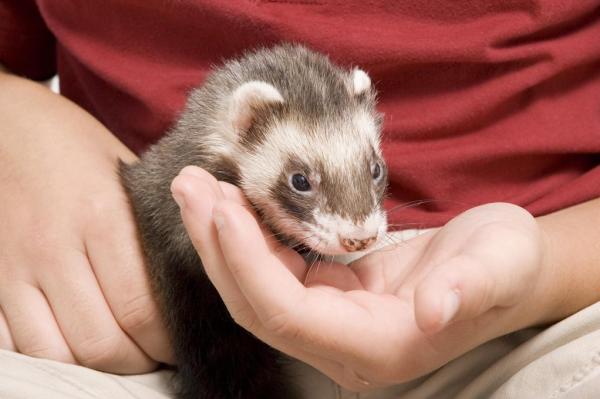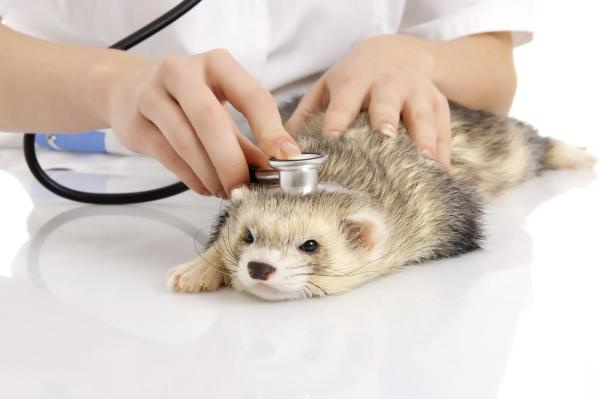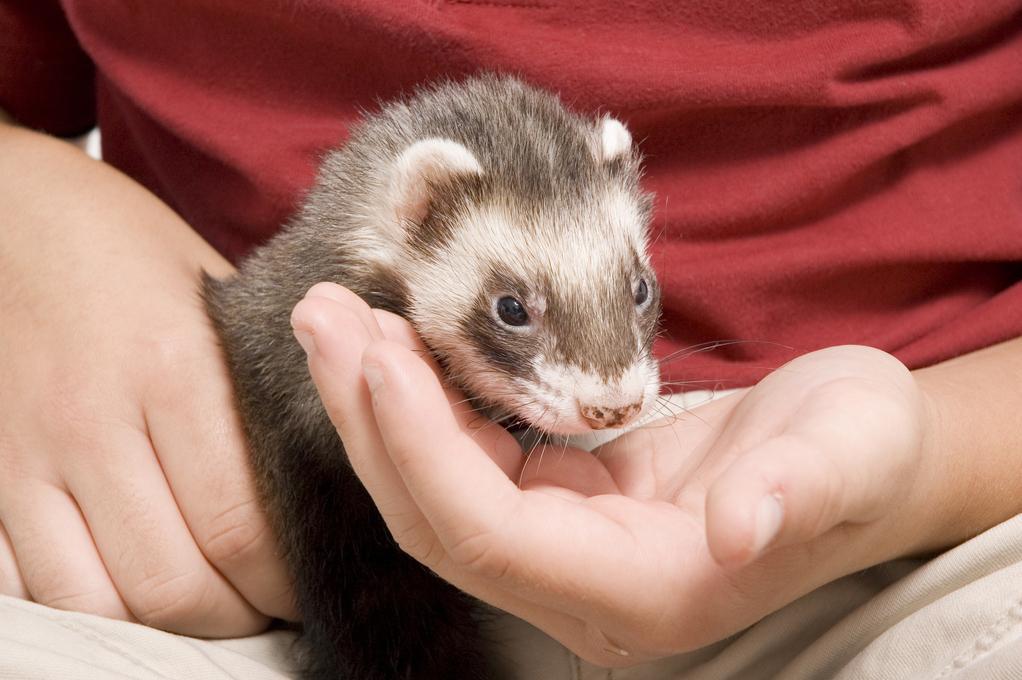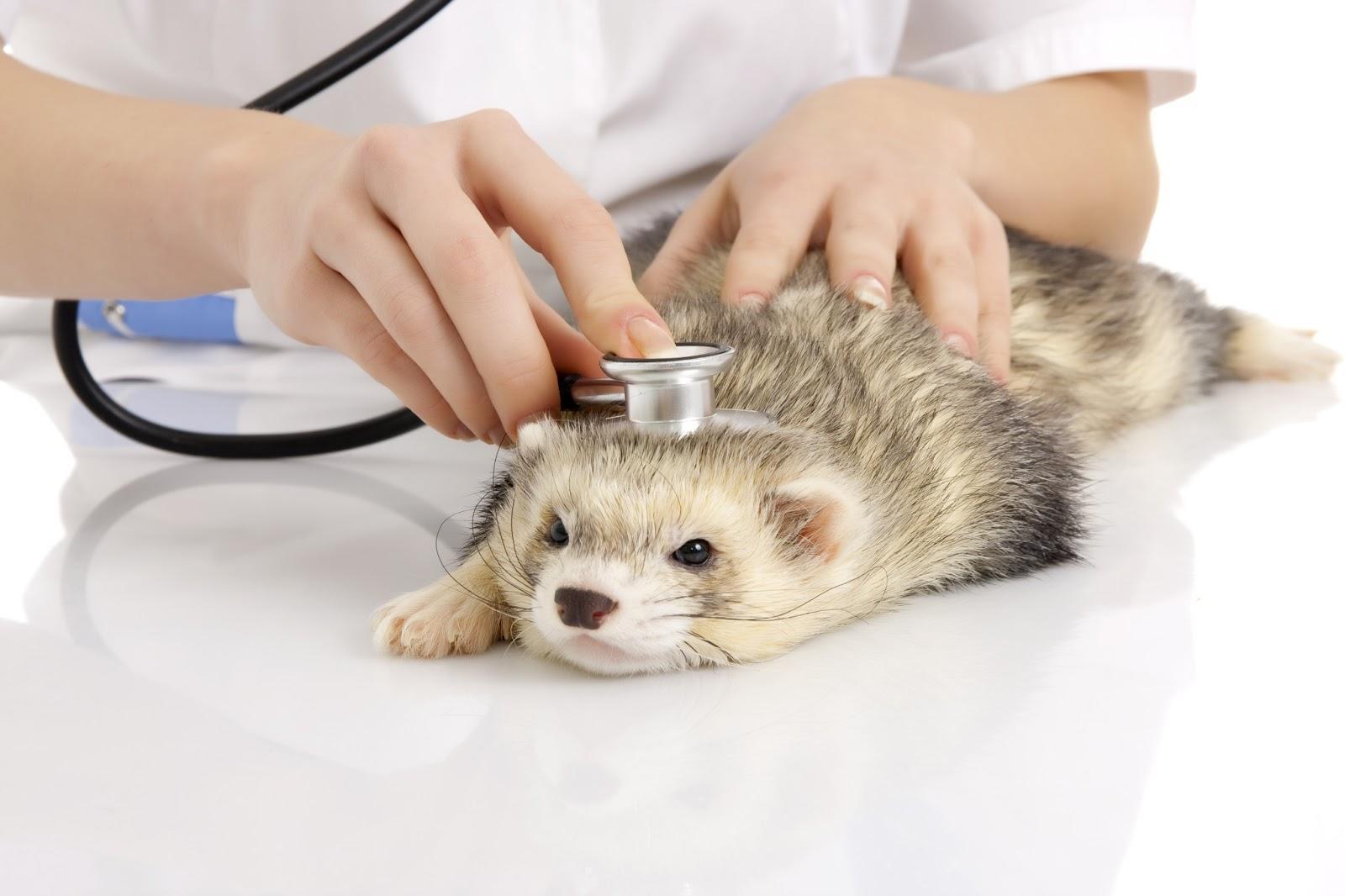Ferrets as Pets: Guidelines and General Tips


The world of companion animals is becoming more and more diverse. When it comes to getting a household pet with which you can share an emotional bond, there are many animals that can make excellent pets beyond cats and dogs. One of these modern popular pets is the ferret, a kind of mustelid.
The ferret is a carnivorous mammal that has a strong hunting instinct. However, despite what you might think, ferrets were domesticated around 2500 years ago with the aim of hunting rabbits. They are not so rare!
This AnimalWised article will tell you all about having a ferrets as pets, and we'll try to clear any doubts that you may have with our guidelines and general tips.
Can a ferret live in a domestic environment?
Like many other animals, ferrets need to be tended to on a daily basis and require specific care. A ferret can't be compared to any animal that requires minimal looking after, like a fish or a hamster. Getting a ferret is more comparable to sharing your home with a cat or dog.
Ferrets have huge amounts of energy and vitality. They actually make excellent pets since they have a very playful character and love to spend time with their human family. Interaction between ferrets and their owners will lead to fantastic moments, since ferrets are as sociable as they are intelligent and show very complex behaviors.
Ferrets are capable of learning their own name and responding to the call of their owners. Similarly, they can adapt to walking on a lead, staying still on your shoulders, and they are even capable of opening doors.
If you're looking for a sociable, fun and playful pet, the ferret might be the best pet for you.

What do pet ferrets need?
If you're willing to adopt a ferret as a pet, you need to know that it has a series of basic requirements and that it's your responsibility to fulfill all of them, keeping your pet in the best environment and in a state of complete well-being for all its life.
Before getting a ferret as a pet, we recommend you take the following considerations into account:
- It's obligatory for ferrets to have a passport or similar legal document with a chip.
- Ask the veterinary for the vaccination schedule for ferrets and follow it closely. This is both a legal and a health requirement.
- Many people choose to let their ferrets run free at home, but this animal can be kept in an appropriately-sized cage. Even so, it's essential for the pet ferret to be let out of the cage for several hours a day.
- It's extremely important for pet ferrets to have a balanced diet, which is why it's generally recommended to give it food specifically designed for this species.
- Ferrets are born hunters, so you should exercise caution if birds or small rodents also live at home.
- Ferrets need to be regularly bathed. This can be done once every fortnight or even once every two months; it all depends on the individual animal. Specific toilet products for ferrets should be used.
- It is recommended for pet ferrets to be neutered.
- Ferrets require special attention during the summer, as they are very susceptible to heat stroke.
If you're willing to meet these basic premises that all ferret owners must comply with, you can start thinking about veterinary care, which also will be essential for your ferret.

Veterinary care of pet ferrets
As mentioned above, it's essential for a pet ferret to be subjected to a vaccination schedule, which begins at the age of two months old. It will include vaccines against rabies and distemper, which should be re-administered once a year.
Ferrets should also be regularly subjected to preventative measures against the most common diseases in ferrets. Ask your veterinary for preventive care; for instance, ask about mosquito repellent to prevent heartworm.
You should take your ferret to a vet as soon as possible at the first sign of any illnesses. You should suspect an illness if you see any of the following signs of disease in your ferret:
- Loss of hair
- Loss of appetite
- Vomiting
- Diarrhea
- Difficulty in breathing
- Changes in the deposition of feces
It's also very important to contact a specialist ferret veterinarian, as your ferret will then be able to receive the best possible health care.

Do you want to know more about ferrets?
Are you convinced about ferrets as pets? If you want to adopt a ferret, we recommend that you read the following articules that contain information that will be of great use and interest to you:

If you want to read similar articles to Ferrets as Pets: Guidelines and General Tips, we recommend you visit our What you need to know category.






 This is my Ottis.... he's almost 5years old.
This is my Ottis.... he's almost 5years old.



